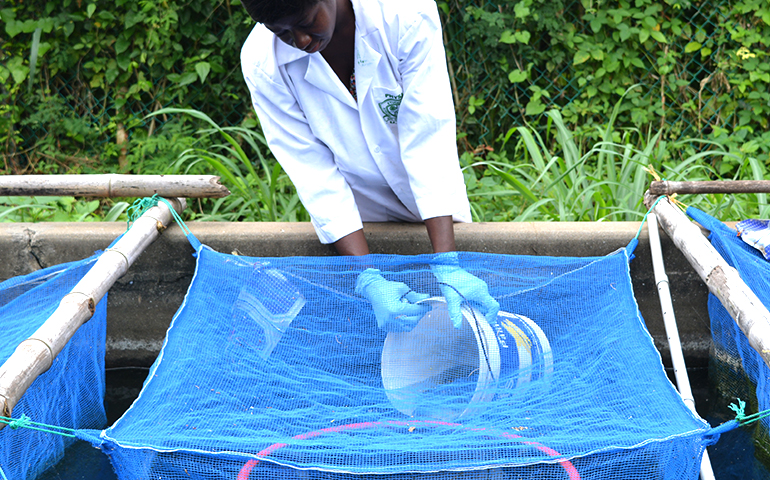Rationale
The importance of the fisheries sector in the economy of many developing countries cannot be overemphasised, given that it provides livelihood for many coastal communities and contributes significantly to gross domestic product. Unfortunately, the fisheries in many of such countries are in a state of decline which calls for urgent management actions to reverse the trend.
Institutions mandated to oversee the development and management of the sector are constrained by a shortfall in middle and high level personnel with both theoretical knowledge and practical expertise in fisheries science. The M.Phil. programme in Fisheries Science of the Department is therefore designed to give students a holistic training in this discipline and thus develop their competency to contribute to management of the sector.
Goals/Objectives
The goal of the M.Phil. Fisheries Science programme is to train middle-level manpower to assist with teaching and research in tertiary institutions and other relevant public and private organizations that require expertise in fisheries science.
At the end of the programme, graduates will be able to:
- demonstrate fisheries management capability
- undertake independent research in fisheries science
- train lower level personnel in fisheries institutions on fishery data collection
Entry requirement
The admission requirement for the MPhil Fisheries Science programmes is a Bachelor’s degree with a minimum of Second Class (Lower Division) or equivalent in the Biological Sciences or related fields with evidence of acquired knowledge based on students’ transcript from a recognised university.
Target groups
- First degree holders in Biological sciences and analogous qualifications
- Diploma holders in the relevant field with a minimum of five (5) years of experience in fisheries
- Workers in the fishing industry: both government and private
Expected Outputs
- Trained middle-level manpower to assist with teaching and research in tertiary institutions.
- Personnel with managerial capacities in the fishing industry and related fields produced.
- Graduates capable of training lower level personnel in fisheries institutions on fishery data collection.

